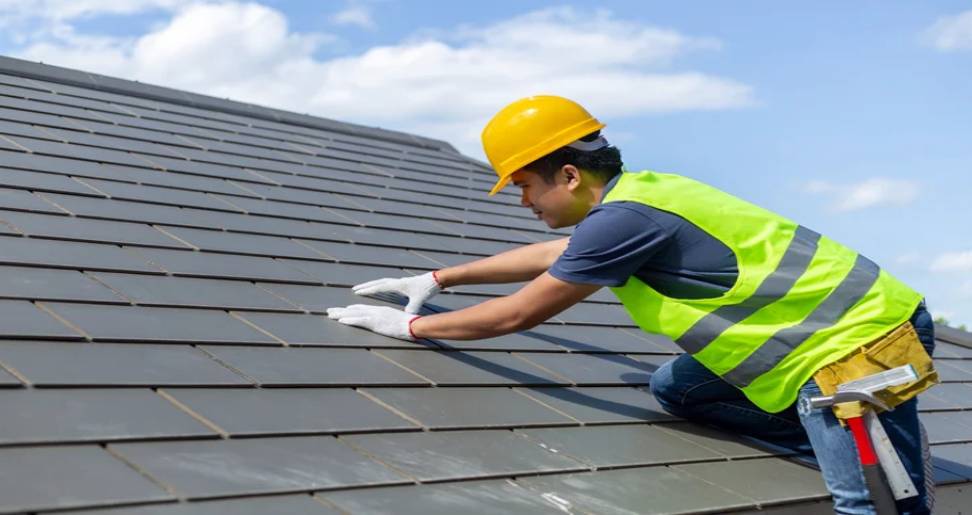Selecting the right roofer is a crucial decision for any roofing project, whether it’s a minor repair or a complete replacement. The integrity of your roof affects not only the aesthetic appeal of your home but also its structural safety and energy efficiency. To ensure a successful roofing project, consider the following key factors when choosing a roofer.
1. Credentials and Experience
The credentials and experience of a roofer are fundamental aspects to evaluate. A reputable roofer should possess the necessary licenses and insurance to operate in your area. Licensing ensures that the roofer adheres to local building codes and standards, while insurance protects you from liability in case of accidents or damage during the project.
Experience is equally important. Roofers with a proven track record are more likely to handle complex issues effectively and provide high-quality workmanship. Ask potential contractors about their years in the business, types of projects they have completed, and if they have experience with the specific roofing material you plan to use.
2. Quality of Materials
The quality of materials used in a roofing project significantly impacts the longevity and performance of your roof. A reliable roofer should offer a variety of high-quality materials and be knowledgeable about the best options for your home and budget.
Inquire about the types of roofing materials the roofer uses, including their durability, warranty coverage, and energy efficiency. Reputable roofers often use materials from well-known manufacturers and provide warranties that guarantee their work and the materials used.
3. Detailed Written Estimates
A detailed written estimate is crucial for avoiding misunderstandings and ensuring that you and the roofer have clear expectations. The estimate should include a comprehensive breakdown of costs, including labor, materials, and any additional expenses such as permits or disposal fees.
Review the estimate carefully and ask questions about any discrepancies or unclear items. A professional roofer will provide a transparent and itemized estimate, helping you understand the full scope of the project and avoid unexpected costs.
4. References and Reviews
Checking references and reading reviews are essential steps in assessing a roofer’s reputation. Contact past clients to inquire about their experience with the roofer, focusing on aspects such as workmanship, communication, and adherence to timelines.
Online reviews and ratings can also provide valuable insights into the roofer’s performance. Look for reviews on trusted platforms and pay attention to both positive and negative feedback. A pattern of satisfied customers generally indicates a reliable and competent roofer.
5. Warranty and Aftercare Services
A robust warranty and aftercare services are indicators of a roofer’s confidence in their work and commitment to customer satisfaction. The warranty should cover both the materials and workmanship, with a clear duration and terms.
Additionally, consider the roofer’s aftercare services, such as follow-up inspections or maintenance options. A reputable roofer will stand by their work and offer support if issues arise after the project is completed.
6. Roof Inspection
Before finalizing your choice of roofer, a thorough roof inspection is essential. A reputable roofer will conduct a detailed inspection to assess the current condition of your roof and identify any underlying issues that need addressing.
During the roof inspection, the roofer should examine not only the visible areas but also potential problem spots such as flashings, underlayment, and ventilation systems. A comprehensive inspection ensures that all issues are identified and addressed in the project plan, reducing the risk of unforeseen problems and additional costs.
7. Communication and Professionalism
Effective communication and professionalism are vital for a successful roofing project. Choose a roofer who is responsive to your inquiries, provides clear explanations, and demonstrates a professional attitude.
A good roofer will keep you informed throughout the project, from the initial consultation to the completion of the work. Clear communication helps in managing expectations, addressing concerns promptly, and ensuring that the project runs smoothly.
8. Contract and Agreement
A formal contract is essential for protecting both parties involved in the roofing project. The contract should outline all the details of the project, including the scope of work, materials to be used, payment terms, and the timeline for completion.
Ensure that the contract includes provisions for handling potential changes or additional work. A well-drafted contract provides a clear framework for the project and helps prevent disputes.
Conclusion
Choosing the right roofer involves careful consideration of various factors, including credentials, material quality, detailed estimates, and roof inspections. By evaluating these aspects thoroughly, you can ensure that your roofing project is handled professionally and efficiently, resulting in a durable and high-performing roof for your home.
Also Read:-
- 5 Slot Game Features That Enhance Gameplay and Excitement
- Sunshine, Culture, And Adventure: Fun Things To Do In Sarasota, Florida

